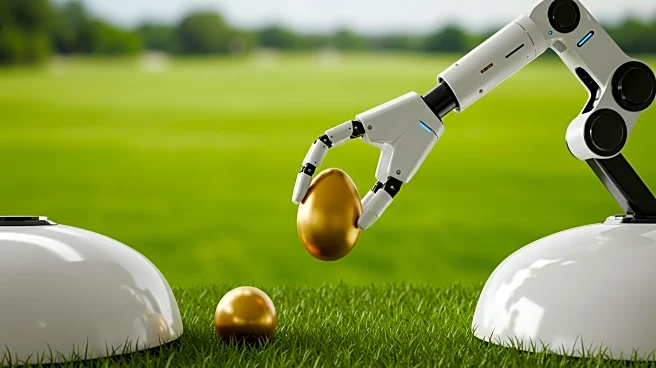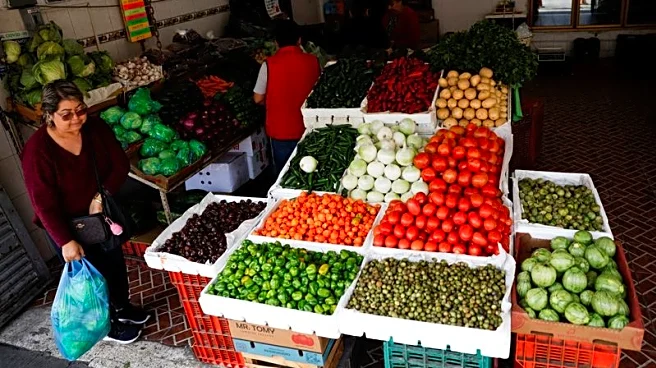What's Happening?
The poultry industry is experiencing significant transformation through the adoption of advanced automation technologies aimed at enhancing efficiency and biosecurity. This shift is driven by the increasing global demand for protein, with the poultry machinery market projected to grow from $5.6 billion in 2025 to $8.1 billion by 2035, supported by a 3.8% CAGR. Automation is streamlining labor-intensive tasks such as feeding, watering, and waste disposal, while IoT and AI tools enable real-time monitoring of bird health and environmental conditions. The market growth is further supported by rising poultry consumption, particularly in urban areas, and government backing for modern farming practices.
Why It's Important?
The integration of automation and sustainable practices in poultry farming is crucial for meeting the growing demand for poultry products while ensuring environmental responsibility. This transformation is expected to improve productivity and animal welfare, reduce labor costs, and enhance biosecurity measures. The adoption of energy-efficient technologies and automated systems is vital for optimizing feed conversion ratios and maintaining healthy farm conditions. As the industry evolves, stakeholders such as farmers, processing factories, and governments stand to benefit from increased efficiency and reduced environmental impact.
What's Next?
The poultry sector is likely to continue investing in smart technologies and sustainable practices to address challenges such as high initial investment costs and biosecurity threats. Regional trends indicate significant growth in the Asia-Pacific market, with North America and Europe also showing strong market shares due to industrial-scale production and strict animal welfare laws. The focus on automation and sustainability is expected to drive further advancements in poultry farming, ensuring long-term productivity and environmental responsibility.
Beyond the Headlines
The shift towards automation and sustainability in poultry farming may have broader implications for food security and environmental conservation. As farms adopt more efficient and eco-friendly practices, there could be a positive impact on reducing the industry's carbon footprint and addressing climate change concerns. Additionally, the use of AI and IoT technologies may lead to innovations in farm management and animal welfare, setting new standards for the industry.










